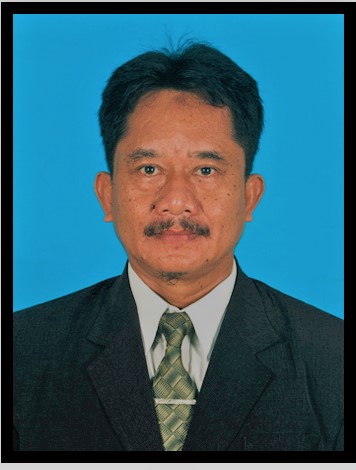Abstract
The athletes performance will be excellent with the support of healthy mind. Psychological state such as anxiety must be lessened to achieve the desired performance. Several previous studies suggest that anxiety is closely related to self-efficacy. Positive self-efficacy helps the athletes in controlling their anxiety. This study aims to determine the relationship between self-efficacy and anxiety before the match. The research involves 44 female futsal athletes of Sebelas Maret University in Surakarta. To measure the variables in this study, the anxiety scale before the match (reliability = 0.927) and self-efficacy scale (reliability = 0.859) are used. Hypothesis test result of r = -0.334 shows that there is a negative and significant relationship between self-efficacy and anxiety before the match, which means the lower self-efficacy, the higher athletes’ anxiety before the match (P = 0.023; p <0.05). This research is limited to female futsal athletes. Further studies are expected to involve male athletes and other sports.
References
Arifin. (2018). The Supremacy of Ego in Nightcrawler: a Study of Behavioral Psychology. University of Techonology Yogyakarta.
Bandura, A., Freeman, W. H., & Lightsey, R. (1999). Self-efficacy: The exercise of control. Newyork: WH Freeman and Company.
Bandura, Albert. (1997). Self-efficacy : The Exercise Control. Harvard Mental Health Letter. https://doi.org/10.1007/SpringerReference_223312
Bandura, A. (2001). Social cognitive theory: an agentic perspective. Annual Review of Psychology.
Besharat, M. A., & Pourbohlool, S. (2011). Moderating Effects of Self-Confidence and Sport Self-Efficacyon the Relationship between Competitive Anxietyand Sport Performance. Psychology, 2(1), 760–765. https://doi.org/10.4236/psych.2011.27116
Cox, R. H. (2007). Sport Psychology: Concepts and Applications. Newyork: Mc Growhill Companies.
Dharmawan, D. C. (2016). Kecemasan Menghadapi Pertandingan pada Atlet Futsal. Universitas Muhammadiyah Surakarta, Surakarta.
Harsono. (2008). Coaching dan aspek-aspek psikologis dalam coaching. Jakarta: Direktorat Jendral Pendidikan Tinggi.
Husdarta, H. J. S. (2010). Psikologi Olahraga. Bandung: Alfabeta.
Jarvis, M. (2006). Sport Psychology: A Student’s Handbook. London: Taylor dan Francis Ltd.
Lombardo, E. R., Tan, G., Jensen, M. P., & Anderson, K. O. (2005). Anger management style and associations with self-efficacy and pain in male veterans. Journal of Pain, 6, 765–770. https://doi.org/10.1016/j.jpain.2005.07.003
Melysa, P. T. (2018). Hubungan antara Self Efficay dengan Kecemasan Menghadapi Pertandingan Pada Atlet Karate UKM Karate Inkai UNY. Universitas Teknologi Yogyakarta.
Myers. (2002). Social Psychology. Newyork: Mc Graw-hill
Nurlaila, S. (2011). Pelatihan Efikasi Diri untuk Menurunkan Kecemasan pada Siswa-Siswi yang akan Menghadapi Ujian Akhir Nasional. Guidena, 1(1), 4–15.
Pate, R. R., McClenaghan, B., & Rotella, R. (1993). Dasar-Dasar Ilmu Kepelatihan. (K. Dwijowinoto, Ed.). Semarang: IKIP Semarang.
Priyatno, D. (2012). 5 Jam Belajar Olah Data denagn SPSS 17. Yogyakarta: Andi Publisher.
Rezkisari, I. (2019). Perempuan Lebih Mudah Cemas ? Ini Sebabnya. Retrieved from https://www.msn.com/id-id/kesehatan/women/perempuan-lebih-mudah-cemas-ini-sebabnya/ar-BBJKefK
Riani, W. S., & Rozali, Y. A. (2014). Hubungan Antara Self Efficacy Dan Kecemasan Saat Presentasi Pada Mahasiswa Univeristas Esa Unggul, 12(1).
Safitri, D. P. (2017). Hubungan Efikasi Diri dengan Kecemasan Menghadapi Kejuaraan Nasional pada Atlet Tenis Lapangan Pelti Semarang. Jurnal Empati, 6(2), 98–105
Sari, R. P. P. (2017). Analisis Kecemasan Atlet terhadap Prestasi Sebelum dan Sesudah Pertandingan. Jurnal Prestasi Olahraga, 1(1)
Saryono. (2006). Futsal sebagai salah satu permainan alternatif untuk pembelajaran sepakbola dalam pendidikan jasmani. Jurnal Pendidikan Jasmani Indonesia, 3(1), 47–58.
Sugiyono. (2012). Metode Penelitian Pendidikan Pendekatan Kuantitaif, Kualitatif, dan R&D. Bandung: Alfabet.
Turk, D. C., & Okifuji, A. (2002). Psychological factors in chronic pain: Evolution and revolution. Journal of Consulting and Clinical Psychology, 70(3), 678–690. https://doi.org/10.1037/0022-006X.70.3.678
Ursin, H., & Eriksen, H. R. (2004). The cognitive activation theory of stress. Psychoneuroendocrinology, 29(5), 567–592. https://doi.org/10.1016/S0306-4530(03)00091-X
Authors who publish with this journal agree to the following terms:
- Copyright on any article is retained by the author(s).
- The author grants the journal, the right of first publication with the work simultaneously licensed under a Creative Commons Attribution License that allows others to share the work with an acknowledgment of the work’s authorship and initial publication in this journal.
- Authors are able to enter into separate, additional contractual arrangements for the non-exclusive distribution of the journal’s published version of the work (e.g., post it to an institutional repository or publish it in a book), with an acknowledgment of its initial publication in this journal.
- Authors are permitted and encouraged to post their work online (e.g., in institutional repositories or on their website) prior to and during the submission process, as it can lead to productive exchanges, as well as earlier and greater citation of published work.
- The article and any associated published material is distributed under the Creative Commons Attribution-ShareAlike 4.0 International License





